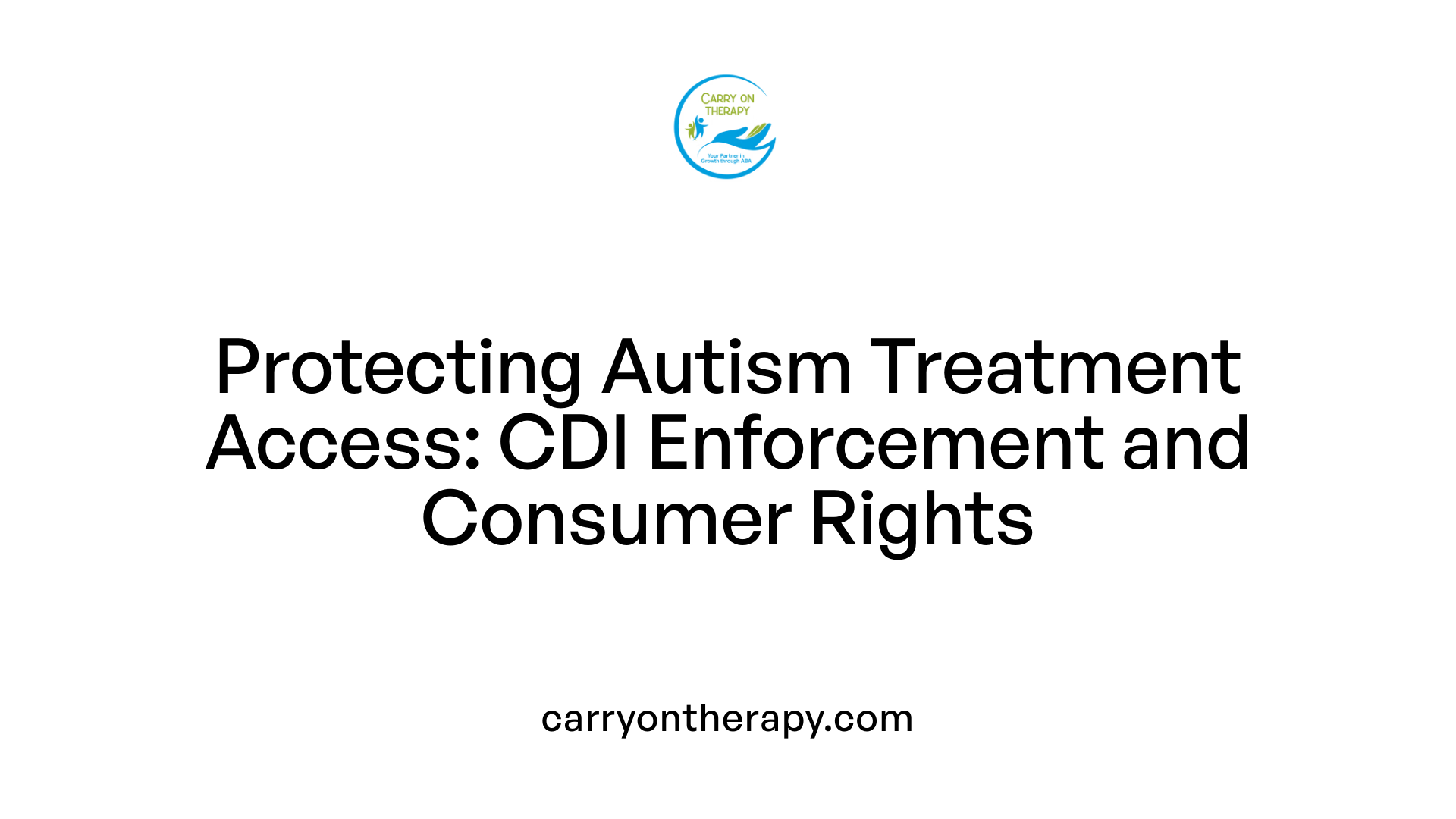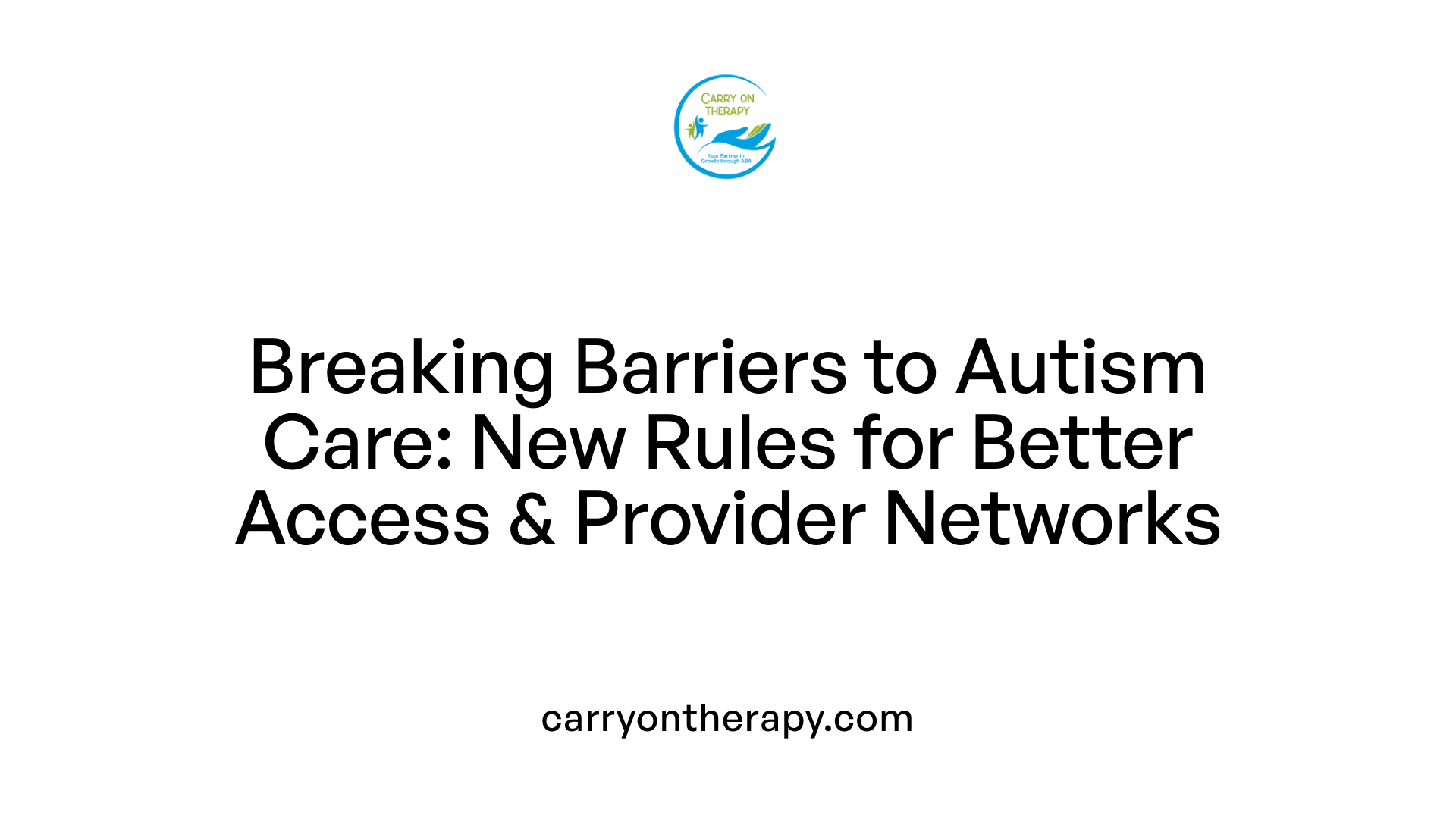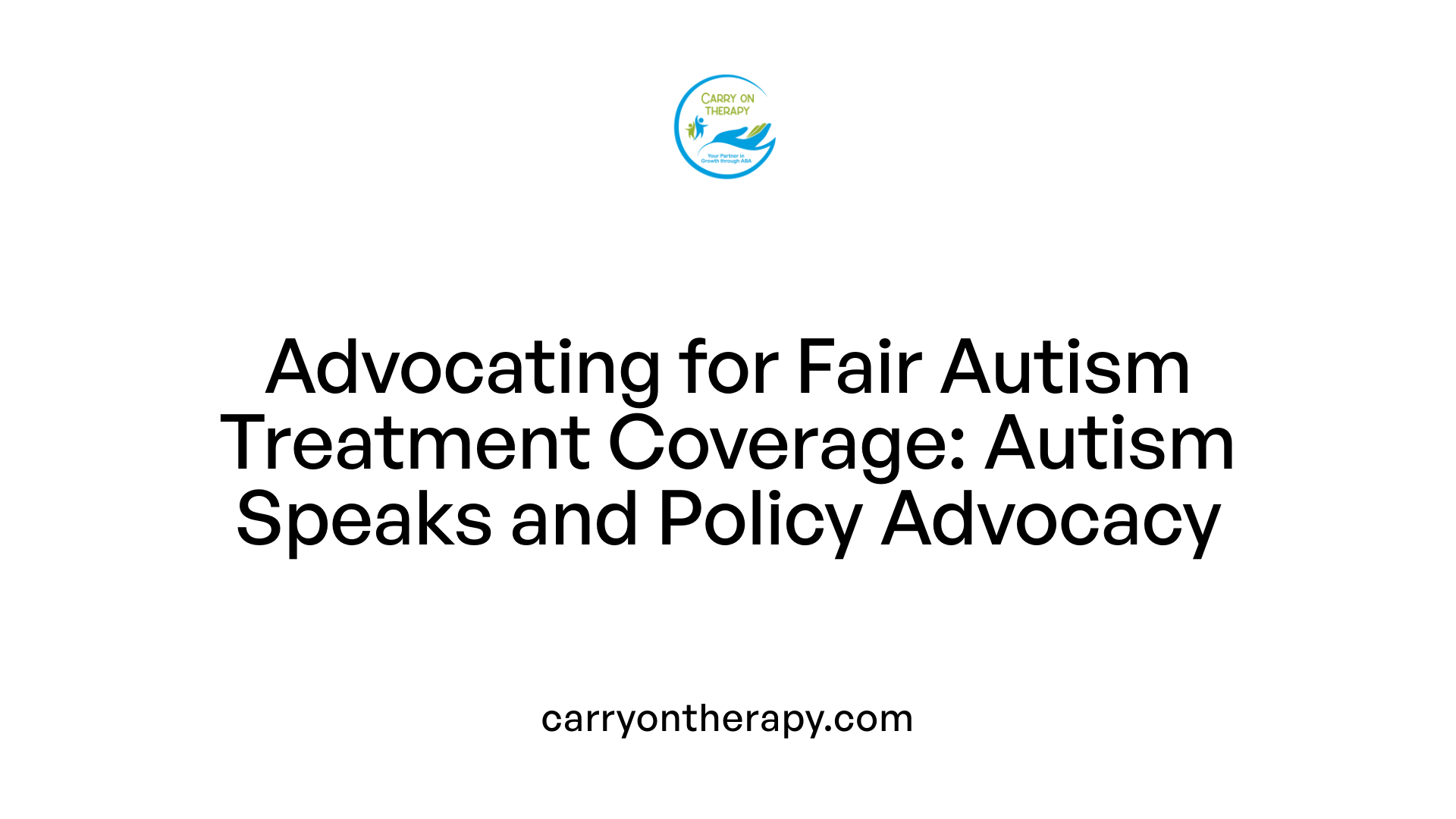Understanding Autism Treatment Coverage and Legal Frameworks
Autism spectrum disorder affects millions of individuals worldwide, and access to effective treatments such as Applied Behavior Analysis (ABA) therapy can significantly improve quality of life. However, coverage and accessibility of these therapies depend heavily on laws and policies designed to protect patient rights and ensure equitable access. This article explores the intersection of autism treatment therapies and the evolving legal landscape that supports insurance coverage, enforcement, and consumer protections, highlighting key actions and regulations shaping the field today.
What is Applied Behavior Analysis (ABA) Therapy and Its Role in Autism Treatment?
What is applied behavior analysis (ABA) therapy and how does it help individuals with autism?
Applied Behavior Analysis (ABA) therapy is a scientifically supported treatment approach that applies principles of learning and behavior to help individuals with autism spectrum disorder (ASD). ABA focuses on increasing positive behaviors such as effective communication, social interactions, self-care skills, and academic abilities. Simultaneously, it aims to reduce behaviors that may cause challenges or interfere with learning and daily life.
ABA therapy uses evidence-based techniques like positive reinforcement, systematic instruction, and careful observation. This allows therapists to adjust strategies continuously based on the individual's progress. Each treatment plan is carefully tailored to meet the unique needs, skills, and goals of the individual, making ABA a highly personalized intervention.
One of the most notable benefits of ABA is its impact when started early and provided intensively. Early intervention with ABA can significantly enhance developmental outcomes, helping children with autism improve their skills and participate more actively in their communities and everyday life.
Overall, ABA therapy supports individuals with autism in leading more independent, socially connected, and fulfilling lives by building essential skills and reducing obstacles to learning and social interaction.
Legal Mandates for Autism Treatment Coverage: Focus on Senate Bill 946 and State Laws
What laws mandate insurance coverage for autism treatments like ABA therapy?
California's Senate Bill 946 specifically requires insurance plans to cover behavioral health treatments for autism, including applied behavior analysis (ABA) therapy. This landmark legislation ensures families have access to essential autism therapies through mandated insurance benefits.
State-level insurance mandates
Beyond California, most U.S. states have enacted statutes compelling insurers to provide coverage for autism treatment. These mandates aim to guarantee that behavioral interventions, along with other therapeutic services, are accessible and covered by insurance plans.
Coverage of behavioral therapies including ABA
Behavioral therapies such as ABA are central to many insurance coverage laws. Many statutes explicitly include ABA therapy under behavioral health treatment provisions for autism, reflecting its importance in early and ongoing care.
Limits and caps on coverage in different states
Insurance coverage laws vary on limits placed on autism treatments. Some states require coverage without caps on the number of visits or sessions, promoting comprehensive care. Others impose maximum benefit limits—for example, some set annual caps around $36,000. These limits affect how families access and utilize autism therapies.
Inclusion of related therapies and medication
Autism treatment coverage often extends beyond behavioral therapies to include physical, occupational, and speech therapies, as well as psychiatric and psychological care and necessary medications. Laws commonly emphasize parity, mandating that autism treatment coverage must not be more restrictive than coverage for other physical illnesses.
These regulations and mandates collectively aim to provide autism patients with timely, equitable access to a full spectrum of necessary health services, supporting early diagnosis and intervention to maximize therapeutic outcomes.
Enforcement and Consumer Protection Efforts by the California Department of Insurance (CDI)

How does the California Department of Insurance enforce autism treatment coverage laws?
The California Department of Insurance (CDI) plays a vital role in enforcing insurance coverage laws for autism treatments, including applied behavior analysis (ABA) therapy. The CDI issues regulations that interpret important legislation such as the California Mental Health Parity Act and Senate Bill 946. These regulations aim to eliminate insurance delays and denials, ensuring that behavioral health treatments for autism are accessible and covered under insurance plans.
To guarantee compliance, the CDI has actively taken enforcement actions against insurers like Blue Shield, Health Net, CIGNA, UnitedHealthcare, and Anthem. These actions help prevent insurers from avoiding their coverage obligations related to autism treatment.
Beyond enforcement, the CDI focuses on protecting consumers through the issuance of consumer alerts and detailed regulations. These initiatives promote transparency in insurance policies and help individuals understand their rights to autism treatment coverage. The department also assists consumers in navigating insurance benefits, making sure they can access the necessary interventions in a timely manner.
Overall, the CDI’s enforcement, regulatory, and consumer protection efforts work together to uphold laws that make autism treatment coverage fair and accessible for Californians.
Addressing Access Barriers: The Proposed Rule to Improve Network Adequacy and Reduce Treatment Limits

What regulatory efforts are being made to reduce barriers to autism treatment access?
The Departments of Treasury, Labor, and Health and Human Services have proposed a significant rule designed to amend the non-quantitative treatment limit (NQTL) standard. This change aims to prevent insurers from using these limits to restrict access to mental health and substance use disorder treatments, including essential autism services like applied behavior analysis (ABA).
How is the rule improving access to autism services through network adequacy?
One of the main focuses of the proposal is to evaluate and improve network adequacy. This means ensuring autistic individuals have timely access to trained providers. The rule addresses problems like phantom networks—where providers appear to be available but are not—and long wait times that delay care.
How does the rule prevent discriminatory coverage practices?
The regulation enforces compliance with mental health parity laws for a wide range of insurance plans, including group, self-funded, and some government plans. This helps prevent insurers from imposing unfair restrictions on autism-related treatments compared to physical health coverage.
What role does data collection and evaluation play in these efforts?
Insurers will be required to collect detailed data on their network composition, provider availability, and utilization rates. This data will be analyzed to identify and fix gaps in specialized autism care access.
How does the rule ensure timely access to trained providers?
By monitoring network adequacy and requiring transparency from insurers, the rule encourages the availability of enough qualified providers. This minimizes wait times and helps families obtain the behavioral health treatments their children need without unnecessary delays.
The Role of Early Diagnosis and Intervention in Autism Laws and Coverage

How do laws support early diagnosis and intervention for autism?
Legislation frequently requires insurance coverage for early diagnosis and intervention services for autism. These laws emphasize the critical nature of beginning behavioral and educational treatments as soon as possible after diagnosis. Early, intensive therapies—such as applied behavior analysis (ABA)—have been demonstrated to improve developmental progress and social skills in autistic children.
Many statutes specifically mandate that coverage for early diagnosis and intervention not be more restrictive than that for other physical illnesses. They often require insurers to cover services prescribed by qualified healthcare professionals without placing unreasonable caps or delays on access. This ensures families receive timely, effective care during pivotal developmental stages.
By legally supporting early access to intervention, these policies encourage proactive treatment that can decrease long-term difficulties and enhance the child's ability to achieve greater independence and quality of life. The integration of early intervention within insurance coverage frameworks reflects an understanding of its vital role in shaping favorable long-term outcomes for autistic individuals.
Insurance Coverage Scope: Beyond ABA to Comprehensive Autism Health Services

What types of autism-related treatments beyond ABA therapy are typically covered by insurance?
Insurance policies often extend their autism treatment coverage well beyond just Applied Behavior Analysis (ABA) therapy. The range of covered services frequently includes:
- Behavioral health treatments addressing the psychological and emotional needs of individuals with autism.
- Pharmacy care, ensuring access to medications necessary for managing symptoms or comorbid conditions.
- Psychiatric and psychological therapies aimed at diagnosis, counseling, and ongoing mental health support.
- Physical therapy, to help with motor skills and movement challenges.
- Occupational therapy, assisting with daily living skills and sensory integration.
- Speech therapy to improve communication abilities.
How do state regulations impact coverage limits and ensure equitable treatment?
Coverage limits vary widely among states. Some statutes impose maximum annual benefits or caps on the number of visits for autism treatments, such as an annual $36,000 maximum in certain cases. Others go further by providing unlimited visits or removing caps, ensuring continuous access to necessary care.
Importantly, many state laws mandate that insurance coverage for autism-related services cannot be more restrictive than coverage for physical illnesses. Treatment prescribed by qualified physicians is generally ensured coverage, upholding parity between mental health and physical health services.
By encompassing a broad spectrum of therapeutic and medical services and emphasizing parity and adequate coverage limits, insurance policies aim to comprehensively address the multifaceted needs of individuals with autism throughout their treatment journey.
Advocacy and Support: Autism Speaks and the Push for Equitable Health Care Access

How does Autism Speaks contribute to improving autism treatment laws and policies?
Autism Speaks has taken a strong stance supporting the proposed rule changes by the Department of Treasury, the Department of Labor, and the Department of Health and Human Services. This rule aims to reduce barriers to healthcare services for autistic individuals, including vital autism treatments like applied behavior analysis (ABA).
The organization advocates for amendments that prevent the use of non-quantitative treatment limits (NQTLs) which often restrict access to behavioral health services for autism. Autism Speaks emphasizes the need for network adequacy, ensuring that autistic individuals have timely access to qualified and trained providers to prevent problems like phantom networks and long wait times.
By pushing for regulatory changes that enforce mental health parity laws, Autism Speaks promotes equity in insurance coverage for autism services in both group and self-funded plans, as well as nonfederal government plans. Their efforts encourage transparency from insurers and protect consumer rights in accessing comprehensive autism health care.
Through these activities, Autism Speaks influences policy and legislation, supporting early diagnosis and intervention and helping to create a healthcare environment where coverage for behavioral treatments is comparable to that for physical illnesses. Their continuous advocacy enhances awareness and drives improvements in laws that govern autism treatment coverage nationwide.
Towards Better Access and Equity in Autism Care
The landscape of autism laws and policies continues to evolve, reflecting growing recognition of the importance of comprehensive, equitable treatment access. From mandates like Senate Bill 946 to enforcement actions by regulatory bodies such as the California Department of Insurance, there is a concerted effort to uphold individuals’ rights to necessary therapies including ABA. Proposed federal regulations targeting treatment limits and network adequacy promise to further dismantle barriers that autistic individuals and families frequently encounter. Supported by advocacy groups like Autism Speaks, these legislative and regulatory advances work to create a future where early diagnosis, tailored interventions, and broad-spectrum care are not privileges but standardized elements of autism support. Ensuring that insurance coverage matches these standards is essential to unlocking autism’s potential for meaningful and impactful progress in the lives of those affected.
References
- CDI Action to Secure Insurance Coverage for Autism
- Summary Autism and Insurance Coverage State Laws
- Autism Speaks strongly supports new rule to reduce ...
- Applied Behavior Analysis (ABA)
- The Top 10 Reasons Children With Autism Deserve ABA
- Applied Behavior Analysis (ABA)
- 6 Benefits of ABA Therapy for Children with Autism
You have to Start to be Great!






